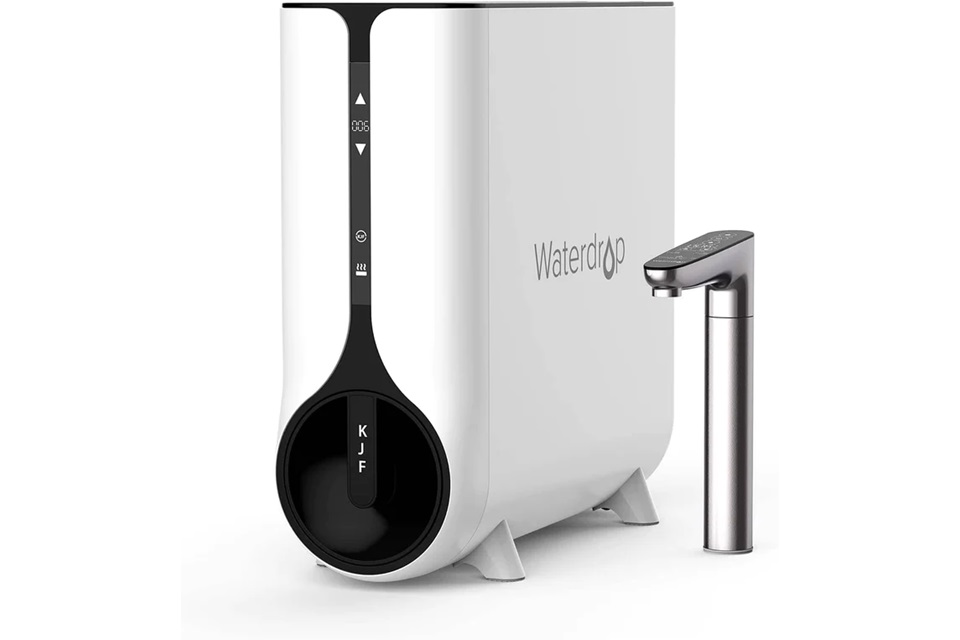As concern for health and environmental sustainability grows, home water quality management is becoming an important issue in today’s society. Especially entering 2024, the reverse osmosis filter market has experienced significant growth. From simple water purification equipment to essential health tools for modern homes, the value of reverse osmosis system filters has been recognized globally. Moreover, with the advancement of technology and rising consumer awareness, choosing filters has become a priority for many households and individuals.
Table of Contents
1. Advanced Filtration Technology
The core advantage of reverse osmosis filters lies in their cutting-edge filtration technology. Compared to traditional filtration systems, these filters use a multi-stage filtration process, including activated carbon filtration, reverse osmosis membranes, and ultraviolet disinfection. These methods work together to effectively remove tiny pollutants from the water, such as heavy metals like lead, mercury, and arsenic, as well as pathogens like bacteria and viruses.
Importantly, this technology not only improves filtration precision but also provides consistent filtration performance without sacrificing water flow rate. Advanced filtration materials, like nano-fiber filters, can intercept very small pollution particles, and their self-cleaning function reduces maintenance needs. This not only ensures the safety and purity of the water but also significantly extends the life of the filter, thereby enhancing overall cost-effectiveness.
2. Improved Water Quality
Reverse osmosis filters improve water quality, not just by removing pollutants. They significantly enhance the taste and odor of drinking water, making it fresher and more palatable. This is particularly important for those living in hard water areas, as the filters effectively reduce the mineral content in water, preventing scale formation.
Besides improving taste, the water’s nutritional value also increases after filtration. For example, some high-end reverse osmosis filters can retain beneficial minerals and trace elements in the water while removing harmful substances. This balanced approach ensures that the natural health properties of the water are not compromised.
In terms of scientific research, numerous studies have confirmed that high-quality water filters significantly improve drinking water quality. This not only helps to elevate the standard of daily life but also positively impacts long-term health. Clean, pure drinking water has been shown to reduce the risk of certain health issues, such as digestive system diseases and skin conditions. You can try a reverse osmosis system from Waterdropfilter.
3. Environmental Impact
Speaking of environmental protection, filters have shown their undeniable advantages. Imagine, every time a bottled water is purchased, there’s a plastic bottle that may ultimately be discarded. By switching to reverse osmosis filters, you not only reduce reliance on disposable plastics but also make a real contribution to reducing environmental pollution. This change benefits not only the individual but also the entire planet. Moreover, efficient filtration technology means more rational use of natural water resources, helping to promote a sustainable lifestyle.
4. Cost-Effectiveness
In the long run, filters are a financially wise choice. Although their initial cost may be higher than traditional filtration methods, their durability and low maintenance costs mean fewer long-term expenses. Think about the cost of buying bottled water every day; over time, this expense is considerable. The use of reverse osmosis filters, however, can save this expense while providing a continuous, stable supply of pure water. This represents significant savings for both households and businesses.
5. Ease Of Use & Maintenance
The design of reverse osmosis filters takes user-friendliness into account. Their installation and maintenance processes are straightforward, making them easy to handle even for users not very familiar with technology. The steps to replace the filter are intuitive and most brands provide detailed usage guides and customer support. This means users can enjoy a continuous supply of pure water without worrying about complex operations.
Other Types Of Water Filters
When considering purchasing a water filter, understanding the characteristics and applicable scenarios of different types of filters is very important. Here, we compare reverse osmosis filters with two other common types of filters: distillers and ultraviolet filters.
Distillers
- Working Principle: Distillers remove impurities by heating water to boiling and collecting steam, while reverse osmosis filters use multi-layer filtration technology to directly remove pollutants from the water.
- Efficiency and Time Consumption: The distillation process is relatively time-consuming, while reverse osmosis filters provide instant filtration effects.
- Pollutant Removal Capability: Distillers are very effective at removing inorganic substances but limited in dealing with some organic compounds and volatile chemicals. Reverse osmosis filters can more comprehensively remove a variety of pollutants, including heavy metals, bacteria, and viruses.
- Taste: Distilled water may taste bland due to the lack of minerals, while reverse osmosis filters retain healthy minerals in the water, thus providing a better taste.
Ultraviolet Filters
- Working Principle: Ultraviolet filters use ultraviolet light to kill bacteria and viruses in the water, while reverse osmosis filters remove pollutants through physical filtration layers.
- Disinfection Effect: Ultraviolet filters are effective at killing bacteria and viruses but cannot remove heavy metals, chemicals, or suspended particles. Reverse osmosis filters can remove microorganisms as well as chemical pollutants and particulates.
- Power Requirements: Ultraviolet filters require a stable power supply to keep the UV light running, while reverse osmosis filters usually do not need electricity or have lower power requirements.
- Maintenance: Ultraviolet filters need regular replacement of the light tube, while the main maintenance of reverse osmosis filters involves replacing the filter.
- Overall, reverse osmosis filters have distinct advantages in removing various pollutants, maintaining water quality taste, and ease of maintenance. They are suitable for both home and commercial environments, providing users with convenient, efficient, and comprehensive water purification solutions.
Conclusion
As water quality issues become increasingly prominent, choosing an efficient and environmentally friendly water filter becomes particularly important. Reverse osmosis filters, with their advanced technology, excellent performance, and environmental benefits, have become an ideal choice in 2024. Whether for health, environmental protection, or economic benefits, investing in reverse osmosis filters is a wise decision. They not only improve our quality of life but also contribute to protecting our precious Earth’s resources.



